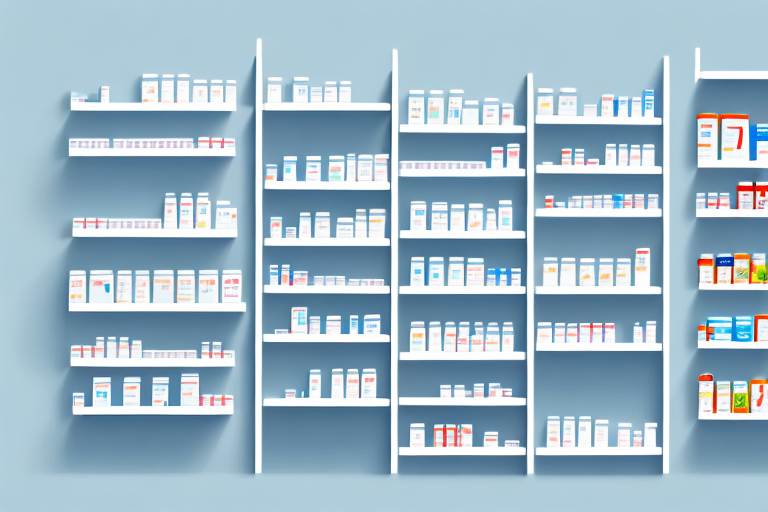The Essential Role of Pharmacies in Community Health
Pharmacies are integral to communities, providing not only access to medications but also essential healthcare services for all members. Patients depend on these establishments for the timely and efficient filling of prescriptions, enabling them to manage their health conditions effectively. However, when pharmacies close, the repercussions can be significant, adversely affecting community well-being and access to healthcare.
Key Functions of Pharmacies in Communities
Healthcare Providers and Educators
Pharmacies extend beyond being mere retail outlets for medications. They act as healthcare providers and educators, offering patients valuable advice on medication management and medical conditions. Pharmacists can also refer patients to appropriate healthcare professionals when necessary, ensuring comprehensive care.
Accessibility and Convenience
Typically located in residential areas, pharmacies offer convenient access to essential medications and services. This proximity is crucial for individuals with mobility issues or those living in underserved areas, enhancing overall community health and well-being.
Vaccination Services
Many pharmacies provide vaccination services, including flu shots and other immunizations, which are vital for preventing the spread of diseases. This service is particularly important for vulnerable populations such as the elderly and individuals with compromised immune systems.
Economic Contributions
Pharmacies contribute significantly to the local economy by creating jobs and supporting other businesses. They often collaborate with local healthcare providers to offer health screenings and community events, fostering strong relationships within the community.
Pharmacies as Pillars of the Healthcare System
First Point of Contact
Pharmacies often serve as the first point of contact for patients seeking medical advice for minor ailments. Pharmacists provide guidance on managing health conditions and ensure patients understand their medication regimens, preventing potential drug interactions and promoting effective treatment.
Impact During Health Crises
The COVID-19 pandemic underscored the pivotal role of pharmacies in healthcare. With limited access to traditional healthcare facilities, pharmacies became crucial in administering vaccines and providing routine care, highlighting the necessity of supporting these establishments.
Reasons Behind Pharmacy Closures
Financial Challenges
Financial difficulties are a primary reason for pharmacy closures. Factors such as reduced reimbursement rates from insurance companies and increased operational costs can strain a pharmacy's financial stability.
Competition and Online Pharmacies
The rise of online pharmacies has intensified competition, leading to decreased foot traffic and sales for traditional brick-and-mortar pharmacies. The convenience of online ordering and delivery services has shifted consumer preferences, making it challenging for physical pharmacies to remain profitable.
Regulatory and Legal Issues
Pharmacies may also face closures due to regulatory actions or legal sanctions. Compliance with evolving healthcare regulations requires significant resources, and failure to adhere can result in penalties or forced closures.
Staffing Shortages
A lack of qualified pharmacists and support staff can impede a pharmacy's ability to operate efficiently, leading to closures. Staffing shortages may result from burnout, competitive job markets, or inadequate training programs.
Consequences of Pharmacy Closures on Communities
Reduced Access to Medications
Pharmacy closures can severely limit access to essential medications, particularly for individuals with chronic conditions like diabetes or hypertension. This can lead to health complications and decreased quality of life for affected patients.
Economic Impact
The closure of a pharmacy negatively impacts the local economy. Reduced foot traffic can affect nearby businesses, and job losses from the pharmacy itself contribute to increased unemployment and financial strain within the community.
Increased Healthcare Costs
Patients may incur higher costs as they travel longer distances to access medications, and switching pharmacies can result in higher out-of-pocket expenses if new pharmacies do not accept the same insurance plans.
Heightened Risk of Medication Errors
Transitioning to a new pharmacy can lead to delays in transferring medication records, increasing the risk of medication errors. This is particularly dangerous for patients managing multiple medications or complex medical conditions.
Impact on Vulnerable Populations
Elderly Patients
Elderly individuals are especially vulnerable to the effects of pharmacy closures. Many rely on pharmacies for their medications and additional services like blood pressure monitoring and medication counseling. The loss of these services can lead to increased stress, anxiety, and potential health declines.
Low-Income Families
For low-income families, the closure of a local pharmacy can mean reduced access to affordable medications, forcing them to seek more expensive alternatives or forego necessary treatments altogether.
Strategies to Mitigate the Impact of Pharmacy Closures
Government Support and Policy Interventions
Government initiatives can help prevent pharmacy closures by providing financial assistance, adjusting reimbursement rates, and simplifying regulatory requirements. Investments in infrastructure and transportation can also ensure that patients maintain access to medications.
Community Advocacy
Communities can advocate for the retention of local pharmacies through petitions, protests, and engagement with policymakers. Strong community support can influence decisions and promote the sustainability of pharmacies.
Alternative Medication Access Options
When pharmacies close, patients can explore alternative options such as online pharmacies, community health clinics, and mobile pharmacy services to continue accessing necessary medications.
Supporting Local Pharmacies for a Healthier Community
Promote Pharmacy Services
Residents can support local pharmacies by utilizing their services, providing feedback, and referring friends and family. Patronage helps maintain pharmacy revenue and supports their role in the community.
Collaborate with Stakeholders
Collaboration between pharmacists, healthcare providers, and community leaders can foster a supportive environment that enhances pharmacy services and prevents closures.
Conclusion
Pharmacies are vital to the health and economic stability of communities, offering essential services that go beyond medication dispensing. Understanding the factors that lead to pharmacy closures and their profound impact on communities underscores the need for supportive measures. By advocating for favorable policies, supporting local pharmacies, and exploring alternative medication access options, communities can ensure that pharmacies continue to serve as pillars of healthcare and community well-being.






















